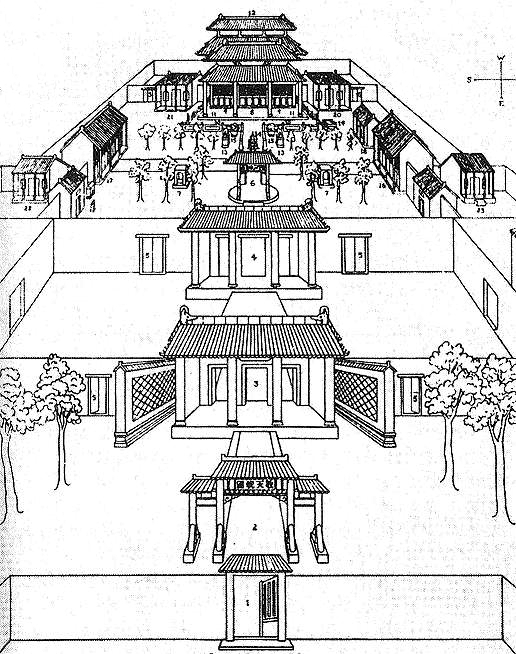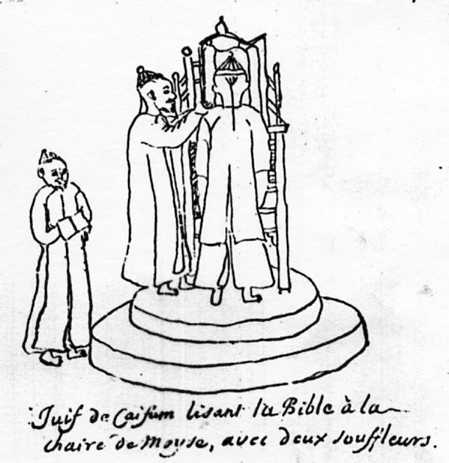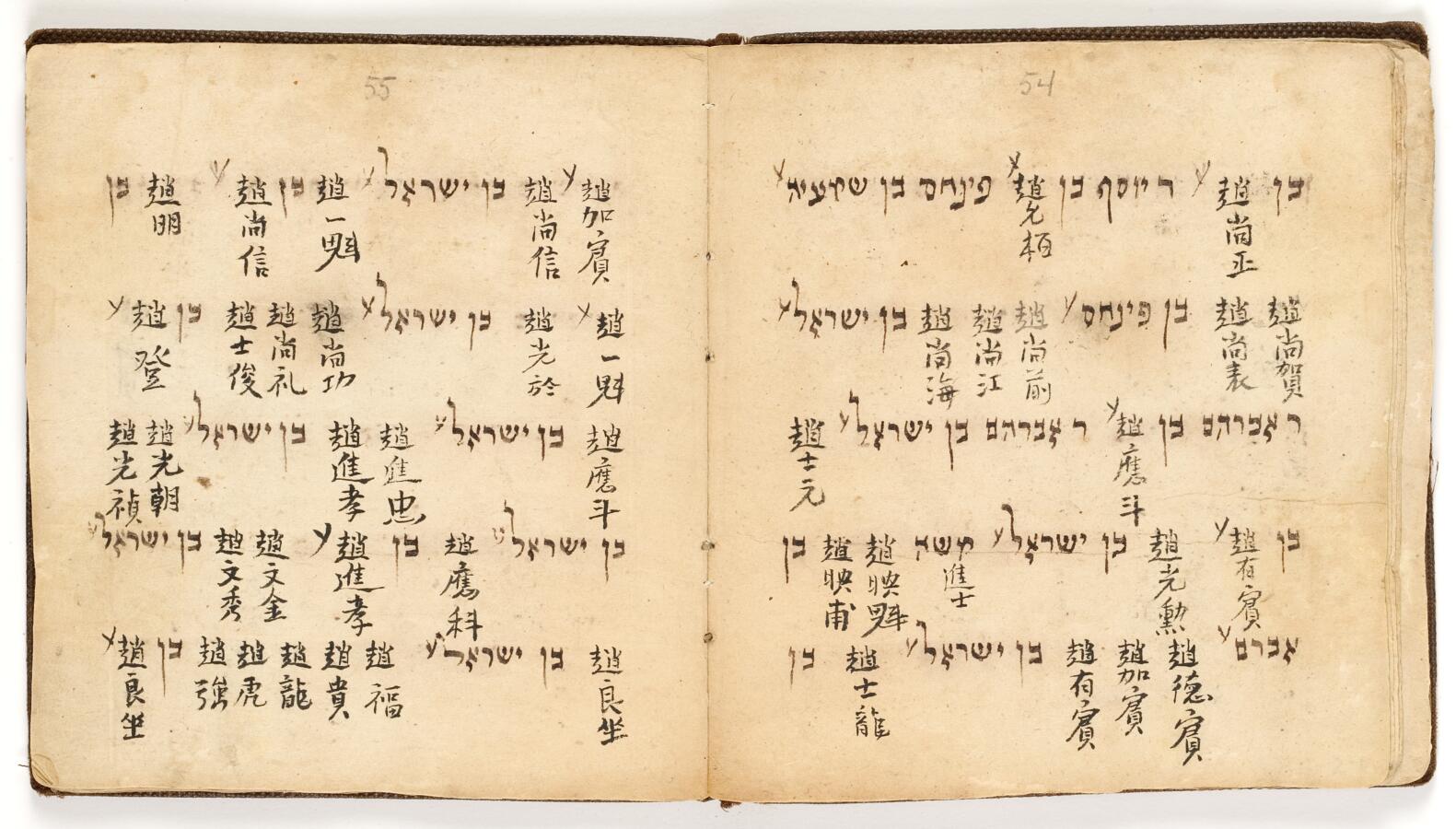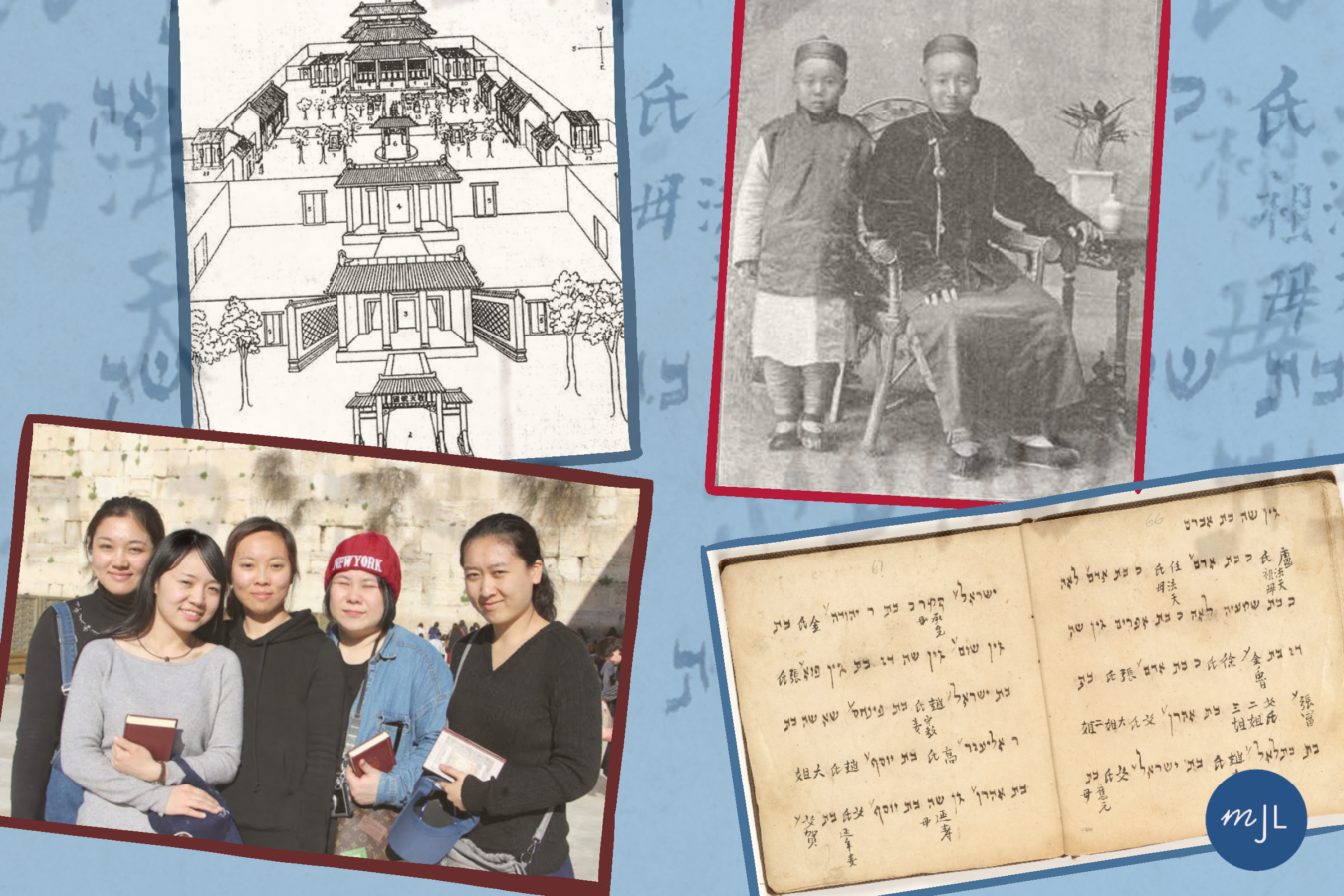Jews have lived in Kaifeng, a city in central China’s Henan province, for over 1,000 years. This makes the Kaifeng Jews the oldest Jewish community in China.
The exact time Jews arrived in Kaifeng is not entirely certain. Most scholars believe that Jews first arrived during the Song Dynasty (960-1127 C.E.), from India or Persia (present day Iran), stops on the Silk Road. During this period, the Chinese people called the Jews “Tiaojinjiao” (the religion that removes the tendon) because Jewish dietary law (kashrut) forbids the consumption of the sciatic nerve. A bit later, during the Ming Dynasty, the emperor assigned Jews one of eight last names because he found Hebrew names confusing. To this day Kaifeng Jews can be recognized by their last names: Ai, Shi, Gao, Gan, Jin, Li, Zhang or Zhao.
At its peak, the Kaifeng Jewish community had around 5,000 members. While some Kaifeng Jews have discreetly recovered their lost Jewish identities, there is nothing close to a formal, organized Jewish community in the city today.
The Kaifeng Synagogue
Kaifeng’s first synagogue was built in 1163 and destroyed by a flood in 1461. In 1600 a fire burned down the synagogue which had replaced the original building. A second flood destroyed the third version of the synagogue in 1642. Yet another flood wiped out Kaifeng’s last synagogue in the 1860’s. The community’s last religious leader died around the same time.

Help us keep Jewish knowledge accessible to millions of people around the world.
Your donation to My Jewish Learning fuels endless journeys of Jewish discovery. With your help, My Jewish Learning can continue to provide nonstop opportunities for learning, connection and growth.

Kaifeng Jews had prayed in their synagogue in both Hebrew and Mandarin. They wore blue head coverings while worshipping, which led misguided neighbors to call them “the Muslims with the blue caps” in order to differentiate these congregants from “the Muslims with the white caps” (actual Muslims who wore white headgear for prayer). Jews in Kaifeng faced westward when praying — the direction of Jerusalem.

Much like Jews outside of China, for centuries, Kaifeng Jews centered their Jewish practices around the synagogue: observing Shabbat and other Jewish holidays, holding circumcisions for sons and giving their children Hebrew names in addition to Chinese names.
Decline of the Kaifeng Jewish Community
For years Kaifeng Jews were isolated from other Jewish communities around the world, and very few people knew of their existence. Europeans did not even realize there was a Jewish community in China until 1605 when a Kaifeng Jew travelled to Beijing and met an Italian Jesuit named Matteo Ricci. Ricci’s account of his encounter with a Kaifeng Jew explained that the Jewish visitor had said he “worshipped one God.”
Historically, China has been one of the few countries in the world with virtually no anti-Semitism. Non-Jewish Kaifeng residents saw similarities between the Jews and themselves, and encouraged Jews to be part of the community. Ultimately, intentional or not, this led to more assimilation.
A difficult period of war and social upheaval in China began in 1644. This, along with the increased tendency of Kaifeng Jews to intermarry with Han Chinese and assimilate, led to a decline in Jewish religious observance. Eventually Kaifeng Jews became indistinguishable in appearance and practice from their non-Jewish neighbors.
Eventually the synagogue’s land was sold and the Torah scrolls taken to libraries in other countries. Today, there are no remaining synagogues (or rabbis) in the city.
Artifacts of the Kaifeng Jewish Community
Although the Kaifeng Jewish community is tiny today, their presence has been well-recorded through the preservation of Jewish artifacts. The British Library houses a Torah scroll from the Kaifeng Synagogue, and its Hebrew letters look very similar to Chinese characters. Additionally, the Hebrew Union College’s Klau Library in Cincinnati, Ohio has a siddur (Jewish prayer book) in Hebrew and Chinese characters and an ancient Hebrew manuscript version of the Bible owned by the community. While the Bible includes vowels, it seems they were written by someone who did not understand them, as the vowels were placed randomly. Since Modern Hebrew does not require vowels, the text can best be read by ignoring the vowels altogether.

Perhaps most notably, the Klau Library also conserves two haggadahs from the Kaifeng community. One, from the 17th century, written in Jewish-Persian hand, and a second from the 18th century, written in Chinese Hebrew square script. Both haggadahs come from a period before the text went through a modern day expansion, therefore the books do not include contemporary songs of European origin such as “Dayenu” and “Had Gadya.” Interestingly, the haggadahs are also missing a blessing over the matzah, which indicates that the writer of the text forgot to write the blessing or the blessing was no longer a part of their Passover traditions. The Kaifeng Jews seem to have spoken Hebrew with heavy Chinese accents which led to some errors in the transcription of the text as well.
Rediscovering Jewish Roots
The establishment of diplomatic relations between China and Israel in the late 1980s, and the arrival of Jewish tourists to Kaifeng, inspired many Kaifeng Jews to rediscover their Jewish identities. A prayer group met for the first time in years, local residents gave tours to sites of Jewish interest, and a 50 person Passover seder was held in 2015. Yet, the ability to practice Judaism publicly was short-lived.
Jewish Life in Kaifeng Today
Between 500 and 1,000 people living in Kaifeng today claim to be Jews. While most don’t speak Hebrew, celebrate Jewish holidays, or practice traditional religious beliefs, these Chinese citizens still call themselves Jewish.
Some members of the community remember celebrating Passover and Yom Kippur as children, or having Stars of David in their childhood homes. Nevertheless, today the only specifically Jewish custom observed by most Kaifeng Jews is the practice of not eating pork. There are approximately 100 Kaifeng Jews who observe Judaism to a fuller extent.
In 2016 the communist Chinese government, which opposes all religion, shut down the few existing Jewish organizations in Kaifeng and forced the small Jewish community to celebrate, learn and pray in private. Additionally, the authorities removed all public signs of Jewish history in Kaifeng and members of the local Jewish community have reportedly been monitored by the authorities.
Some Kaifeng Jews have made aliyah to Israel in recent years, but proving their Jewishness is complex. Chinese descent is patrilineal, which means that descent is calculated through male links only. Traditionally, Jews use matrilineal descent to determine if a person is Jewish. Influenced by Chinese practices, Kaifeng Jews trace Jewish lineage through the patrilineal line. This practice produces extra challenges for Kaifeng Jews who wish to be accepted as Jewish by the larger Jewish community — especially those seeking to move to Israel. Since Kaifeng Jews don’t fit the criteria of Israel’s Law of Return, they are required to go through a yearlong conversion process in order to become Israeli citizens.
While Jews living in other cities of China, such as Beijing and Shanghai, are expat Jews who arrived in recent generations, the Chinese government considers the Jews of Kaifeng to be ethnic Chinese of Jewish descent. Kaifeng Jews even think of themselves as the only proper community of Chinese Jews in the world. Although communist China has never recognized Judaism as an authorized religion, for years Judaism was unofficially tolerated all over the country.
Recently in Kaifeng this has changed and the government created a crackdown on non-government approved religions. The Chinese government feels that ethnically Chinese groups claiming minority status could lead to social and political instability. By contrast, non-Chinese Jews (Jews living in China outside of Kaifeng) are free to practice Judaism as long as they don’t promote Judaism among the Chinese population.
Learn more about Jewish communities around the world by signing up for our email journey here.



